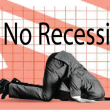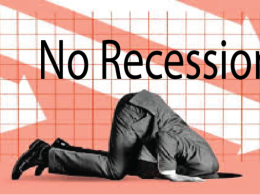by Bob Doll, Chief Equity Strategist, Fundamental Equities, BlackRock Inc.
 After many weeks of gains, equity markets declined last week, perhaps as part of a long-awaited "buy the rumor, sell the news" trade on the back of the Federal Reserve's announcement of additional quantitative easing (QE2) and the results of the US midterm elections. For the week, the Dow Jones Industrial Average sank 2.2% to 11,192, the S&P 500 Index declined 2.2% to 1,199 and the Nasdaq Composite dropped 2.4% to 2,518.
After many weeks of gains, equity markets declined last week, perhaps as part of a long-awaited "buy the rumor, sell the news" trade on the back of the Federal Reserve's announcement of additional quantitative easing (QE2) and the results of the US midterm elections. For the week, the Dow Jones Industrial Average sank 2.2% to 11,192, the S&P 500 Index declined 2.2% to 1,199 and the Nasdaq Composite dropped 2.4% to 2,518.
Now that QE2 has been announced, investors are turning their attention to what its impact may be. Fixed income markets rallied in advance of the announcement, as Treasury yields moved lower, but improvements in some economic data and rising inflation concerns are starting to put some upward pressure on rates. Recent economic news includes data that shows a continuing easing of bank lending standards. In past months, this easing was mostly limited to larger banks, but recent data also shows that smaller banks are easing their standards as well. Hopefully, this trend will auger well for the broader recovery.
Last week also saw the draft release of the Obama Administration's bipartisan National Commission on Fiscal Responsibility and Reform's recommendations to reduce the deficit. Its wide-ranging proposals included comprehensive tax reform, deep cuts in defense spending, cuts in some entitlement spending and cuts in discretionary spending. While no one realistically expects these specific proposals to be enacted, they will hopefully spark some constructive debate about long-term deficit issues.
Additionally, outside the United States, China last week raised its bank requirement reserve ratio for the fourth time this year, perhaps as some sort of counter-response to QE2. China's economic growth continues to be strong and is recovering from a lull it experienced earlier this year, but inflation in China does appear to be a growing concern.
Last week's market correction was, in many ways, somewhat overdue. Both stocks and commodities have experienced significant price appreciation and the US dollar had become oversold, so it should not be surprising to see some sort of reversal in these trends. The question, of course, is whether this correction will continue and what the magnitude and duration might be. From an economic perspective, we believe that the risks of a double dip recession are in the process of vanishing. Money supply is growing, the business sector has remained an important source of strength and consumer spending is holding up reasonably well. Employment remains weak, and jobs growth will have to accelerate in order to strengthen the recovery, but we have seen some signs that employment gains are slowly improving. Over the short term, we could continue to see some sort of setback, and volatility measures will likely remain elevated, but as long as the recovery continues to move along, our outlook is that the trend of risk asset prices moving higher is likely to continue.
About Bob Doll
Bob Doll is Chief Equity Strategist for Fundamental Equities at BlackRock® a premier provider of global investment management, risk management and advisory services. Mr. Doll is also Lead Portfolio Manager of BlackRock's Large Cap Series Funds. Prior to joining the firm, Mr. Doll was President and Chief Investment Officer at Merrill Lynch Investment Managers.
Sources: BlackRock; Bank Credit Analyst. This material is not intended to be relied upon as a forecast, research or investment advice, and is not a recommendation, offer or solicitation to buy or sell any securities or to adopt any investment strategy. The opinions expressed are as of November 15, 2010, and may change as subsequent conditions vary. The information and opinions contained in this material are derived from proprietary and nonproprietary sources deemed by BlackRock to be reliable, are not necessarily all-inclusive and are not guaranteed as to accuracy. Past performance is no guarantee of future results. There is no guarantee that any forecasts made will come to pass. Reliance upon information in this material is at the sole discretion of the reader. Investment involves risks. International investing involves additional risks, including risks related to foreign currency, limited liquidity, less government regulation and the possibility of substantial volatility due to adverse political, economic or other developments. The two main risks related to fixed income investing are interest rate risk and credit risk. Typically, when interest rates rise, there is a corresponding decline in the market value of bonds. Credit risk refers to the possibility that the issuer of the bond will not be able to make principal and interest payments. Index performance is shown for illustrative purposes only. You cannot invest directly in an index.
Copyright (c) BlackRock Inc.











